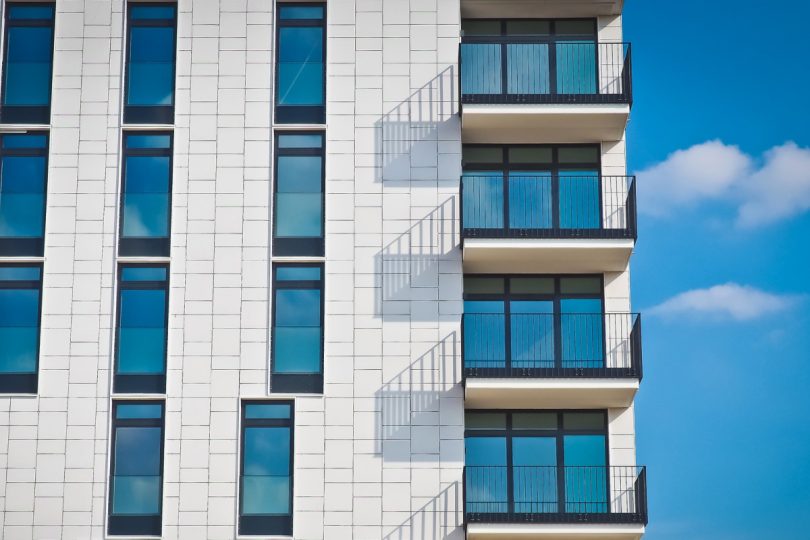There are many things to consider when buying a home, from the initial decision to start looking, to negotiating with the seller and finally closing on the property.
If you’re a first-time homebuyer, you may have questions about each stage of the process. To help you out, we’ve compiled a list of questions in three categories: Looking for a home, Realtors and Offer and Acceptance
LOOKING FOR A HOME FAQS
- When Is It Time To Stop Renting, And Buy A Home?
The decision to buy a home vs. rent depends on many factors, including your financial situation, your lifestyle, and your long-term goals. Ultimately, you’ll need to decide what’s best for you. If you’re looking to build equity and have a place to call your own, buying a home may be the right choice. On the other hand, renting offers flexibility and freedom that may be better suited for some people.
- How Much Can I Afford?
How much house you can afford depends on your income, credit score, down payment, and the interest rate. Most lenders suggest that you spend no more than 28% of your monthly income on your mortgage payment.
3.How Do I Start The Homebuying Process?
The homebuying process starts with knowing how much you can afford and how much a lending institution will lend you.
4.What’s The First Step Of The Home Buying Process?
Getting Pre-qualified for a mortgage.
When you’re looking to get pre-qualified for a mortgage, it’s a good idea to check out 2-4 different lenders before making a decision. I recommend that two of those be mortgage brokers. They have access to a variety of lenders and can help you get approved with the company that fits you best without you going to bank after bank.
- What is The Difference Between Pre-Qualification and Pre-approval?Pre-qualification is an estimate of how much you can afford to borrow based on your income and debts. Pre-approval is a conditional approval from a lender based on a more thorough review of your finances and a signed purchase agreement.Can I Get Pre-Approved For A Mortgage Without A Purchase Agreement?A pre-approval is based on an underwriter’s review of your financial information: your income, debts, assets, and credit history. They will also look at the property you plan to purchase to make sure it meets their guidelines. While you don’t need a purchase agreement to get pre-approved, having one can make the process go more smoothly since the underwriter can then review the property’s purchase price and other details.
- Does a Pre-Approval Mean You Have The Loan?
No, but one of the main advantages of getting preapproved for a mortgage is that it provides you with a realistic budget to work with as you search for your next home. You will have a clear idea of how much you can afford to spend, which will help you to narrow down your options to homes that fall within your price range. This can save you from feeling disappointed later on if you fall in love with a property that is out of your budget.
Buyers without a letter of preapproval are often not taken seriously during negotiations. If you’re looking to buy a home now, it pays to get prequalified.
- How Do I Find The Right Home?
There are a few things to consider to find the right home. Location is important, as you will want to be close to conveniences like grocery stores, schools, and parks and hopefully work.
You will also want to consider the size of the home you need, as well as the layout. If you have children, you may want a home with a yard. If you are retired, you may want a smaller home that is easy to maintain. Ultimately, the right home is the one that fits your needs, your budget and you like.
- Choosing A Neighborhood Or House First?
This is a very important thing to figure out before you even start looking. If you have a specific house in mind, then you may want to start there and look for neighborhoods that fit your criteria.
Remember you need to live there so you want to choose where you want to live. If you’re not sure which type of house you want, you may want to start by choosing a neighborhood first and narrowing down your search to houses that are available and within your budget, in that area.
- Is It Safe To Buy a Short Sale?Yes. While there are some risks associated with this type of purchase, there are also potential rewards. Ultimately, it is important to do your research and consult with a qualified real estate professional before making any final decisions.Before getting involved in a short sale, it is important to understand what it is and what to expect. A short sale occurs when the money from selling a home is less than what is owed on the home. The home owner cannot afford to pay what is owed in full.
- If you’re thinking about buying a short sale property, there are a few things you should know. First, it may take a while to hear back from the bank about your offer.
- Second, even if you make an offer, the bank could still foreclose on the property.
- Finally, many short sale properties are not in good condition. So, if you’re considering a short sale, be patient and be prepared to do some repairs.
- Is It Safe To Buy A Foreclosure?
Yes, if you do your research and due diligence. A foreclosure is a property that is owned by a lender. If you’re considering the purchase of a foreclosure, it’s important to know that most are sold “as-is.” Foreclosures, if not purchased by an owner occupant, are often purchased by investors.
There are a number of risks associated with buying a foreclosure, but there are also a number of ways to mitigate those risks. One of the biggest risks is that the property may have hidden damage that is not immediately apparent, so have a professional home inspector check out the property before making an offer.
Another risk is that the previous owner may have left behind unpaid debts or liens, which the new owner would be responsible for. It is important to do your due diligence and research if there are any outstanding liens on the property
FAQS ABOUT REALTORS
What Does A Realtor Do?
A realtor is a trained professional who helps people buy and sell property. They work with buyers to help them find the right property, and with sellers to help them get the best price for their property. Realtors are essential help with the paperwork and negotiations involved in buying and selling property.
Who Pays The Realtor?
If you are buying a property with the help of a real estate agent, the agent will get a commission. This commission is a percentage of the purchase price of the property, and is paid by the seller upon closing.
Where Do I Find A Good Realtor?
You may ask your friends or family that have bought or sold a home for recommendations, or look for online reviews of local realtors. You can also go to open houses in the neighborhood you chose and choose a Realtor you like from these.
Don’t let a pushy real estate agent push you into signing on with them. Gather business cards and write your impression of the agent on the back so later you can choose the one you want to work with.
Is An Open House A Good Place To Find A Realtor?
An open house is a great place to find a realtor because you can see them in action and get a feel for their personality and how they work. You can also ask them questions and get to know them better. Don’t settle on the first Realtor you meet even if they pressure you to hire them while you are at the open house.
One thing that you shouldn’t do is use the seller’s Realtor, because they have their own pocket book in mind and want the house to sell at the highest price possible.
How Many Houses Should I Look At Before Buying?
The number of houses you should look at before buying will depend on a few factors, such as your budget, your timeline, and your must-haves in a home. You may be lucky enough to find your dream home on the first day of house hunting, or you might look for a year or more for what you want if your criteria is strict.
If you’re working with a tight budget, you may need to compromise on some of your must-haves in order to find a home that’s affordable.
If you’re working with a shorter timeline, you may need to be more flexible with your budget in order to find a home that’s available.
Should I Get A Buyer’s Agent?
Some people feel more comfortable working with a person that specializes in helping buyers only. They are specialists in buying real estate and can provide guidance and support throughout the home-buying process.
It’s a good idea to use a buyer’s agent when buying a FSBO (For Sale By Owner) house. You can negotiate their fees into the contract if you don’t want to pay out of pocket. A Realtor can keep you out of a lot of trouble when dealing with a FSBO sale.
Do I Pay A Buyer’s Agent A Commission?
The standard commission for a buyer’s agent is 2.5% to 3% of the home’s purchase price, which is usually paid by the seller. In some cases (like buying a FSBO), the buyer may be responsible for paying the buyer’s agent commission, but this is typically negotiable.
Is It Safe To Buy A FSBO?
There are pros and cons to both buying and selling a home through a FSBO (For Sale by Owner) listing. On the plus side, buyers may be able to negotiate a lower purchase price, as the seller will not have to pay a real estate agent’s commission.
Also, buyers working with a FSBO seller may have more control over the home buying process, as they will be dealing directly with the seller. But, there are also some potential drawbacks to this approach, such as the possibility of receiving less than full disclosure from the seller or having to do extensive repairs on the property before closing.
FAQS ABOUT PURCHASE & ACCEPTANCE
What Is The Purchase Process?
The purchase process begins when you submit an offer to purchase a property. Once the offer is accepted by the seller, you will need to provide a deposit and sign a purchase agreement. The purchase agreement will outline the terms and conditions of the sale, including the purchase price, closing date, and any contingencies. The deposit will be held in escrow until closing, at which point it will be applied to the purchase price.
What Is Escrow?
An escrow is a third-party account used to hold funds during a transaction. This account is typically used to ensure that both parties involved in the transaction are satisfied with the terms of the agreement.
What Does The Agreement Of Purchase & Sale Contain?
The Agreement of Purchase & Sale contains the terms and conditions of the real estate transaction between the buyer and the seller. It includes the purchase price, the closing date, the property description, and any special conditions of the sale.
What Is A PCDS?
The Property Condition Disclosure Statement is a legal document that lists the major systems in the house and the seller’s declaration of their condition. For example, the age of the roof, any issues with the plumbing, A/C, etc.
When you have this if there are issues in the future that the seller knew about and failed to disclose you have a legal document to take to court if necessary.
How Much Should I Offer?
This is a really tricky question and depends on a number of factors. If you are in a competitive market you will need to offer at least the asking price. Your Realtor will know the market and advise you.
If the market favors buyers, in my experience you offer a price below asking, that makes you uncomfortable . As long as it isn’t ridiculously low, the sellers will often counter with a lower number than they would if you offer $5000 below asking.
Do I Need A Home Inspection?
A home inspection is not required when buying a home, but it is highly recommended. A home inspection can help identify any potential problems with the home before you purchase it. Without it you could be buying problems that cost much more than the inspection would have.
Is A Final Walkthrough Necessary Before The Closing?
It’s not required, but when you sign the documents it would be great to have peace of mind that the house wasn’t trashed the night before, as could be the case with disgruntled renters. If you negotiate for certain things to be left in the house, doing a final walkthrough will ensure everything is as it should be.
What Are Closing Costs?
Real estate closing costs are the fees and expenses associated with the purchase and sale of a property. These costs can vary significantly from one transaction to the next, depending on a number of factors, including the type of property being bought or sold, the location of the property, the type of loan being used, and the specific terms of the sale.Some of the most common closing costs include the loan origination fee, the appraisal fee, the home inspection fee, the title insurance fee
What Happens At The Closing?
The real estate closing is the final step in the home buying process. It involves signing loan and other legal forms to transfer deed title and the transfer of the property from the seller to the buyer. The closing also includes the signing of the sales contract and the transfer of money from the buyer to the seller.
And… you get the keys to your new home!






